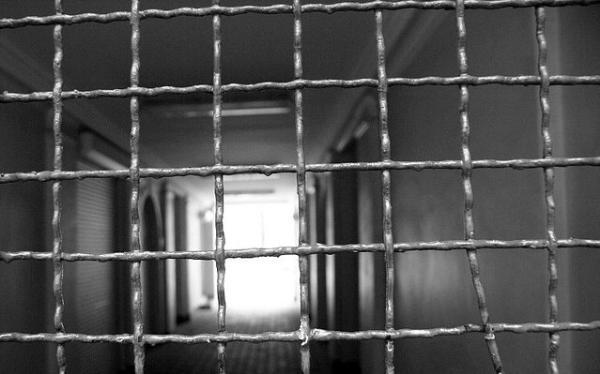Six years ago this month, Chile completed a reform of its criminal justice system that changed the way in which judicial administration was carried out. Nathan Stone, a Jesuit priest of the Chilean province, looks at the current conditions of Chile’s prisons and asks what effects this reform has had. What are the ideological, religious and political motivations that underlie Chile’s penal system?
My family survived a house fire and so I was brought up to make sure that when locking doors at night, you never lock yourself in, in such a way that you need to find a key to get out. Earthquake prone, Chileans have the same instinct. In the event of a real emergency, you have to be able to get out quickly. Jails and fires, for that reason, are a bad combination.
On the morning of 8 December 2010, Feast of the Immaculate Conception, Chileans woke up to discover that there had been a fire at the San Miguel jail in Santiago in the early hours of that day. 83 prisoners died. Most of them were youngsters and first time offenders. Each one of them had a face, a family, a history and most had only a few months remaining before their release. After the painful task of identifying bodies, families received them for burial. They also buried any hope that one day their sons, brothers and husbands could get their lives in order and be happy.
Some would blame the prisoners themselves: the fire started as part of a row between rival groups. Others blame the guards: it was the night shift, there were too few on the eve of a national holiday and there was evidence that some of them had been drinking. They were perhaps slow to react, but there is also a sense that the highest priority in the case of prisoners is not their lives or their safety, but that they not escape. That pattern has been seen repeatedly in some quite absurd situations.
In Paraguay, on 1 August 2004, there was a fire in a supermarket. An order was given to bar all the doors so that the customers could not take advantage of the situation to run off without paying. Three hundred and eleven died there. The merchandise was not stolen, but burned, along with the customers.
In New Orleans, after hurricane Katrina, a teenager was put in jail for picking up a sausage that was floating down the street after the flood. All services had been cut off by the storm, and he was hungry. But ideology called him a looter, so he was arrested by police and shut up in a jail cell that was disappearing under the flood waters.
These are extreme situations, and tales of horror are not uncommon, but what is the underlying supposition that makes this particular kind of absurdity occur? Moreover, when faced with this kind of thing, what can we say? Where is the Lord of hope? Where are our light and our salvation? Are we sinking into an abyss of political agendas that have taken priority over human lives? At times we seem to be trapped in a labyrinth of Pharisaic procedure that must be observed even if it means that many people will die.
Some say that those young men were in jail because ‘they deserved it’, and so must face the consequences. The fact is that most were there for minor offences, the kind of thing most people have got away with at some point in their lives. But these boys had no lawyer and no family connection to help them avoid jail time. In the judicial system, where is mercy? Where is the second chance? Is there hope of a new life reformed? If not, why not? Is hope only for the privileged few, the friends and relatives of people who are important?
The political agenda
In Chile, the government of President Sebastián Piñera took office in March 2010. A candidate representing the right wing coalition assumed the presidency for the first time since the end of the Pinochet era in 1990. In practice, on most issues, the political right has become almost indistinguishable from the centre left. Neo-liberalism still dictates the general direction of most policy decisions and not much is to be done about it. The right does, of course, more openly embrace big business and land owners, a strategy for the common good, supposedly.
There was one issue in particular, however, in the political campaign leading up to the January 2010 election that crossed political boundaries and became transversal: law and order. Ordinary street crime scares people. Drug sale and use seemed to be on the rise, and with them, petty robbery.
Television lionises police work reigning victorious in a daily battle against crime and antisocial behaviour; people seem to have been voting for ‘catching bad guys’, because that’s what they see on the police programs. The Piñera campaign capitalised on this and hit a nerve with the message, ‘You will be safer if I am president’. It’s a gentler version of the Pinochet charisma: ‘If I am not all powerful, there will be chaos in Chile’.
How much the crime rate might or might not change during Piñera’s presidency remains to be seen. Carabineros (the police force) and Investigaciones (detectives) are weighty institutions, with a few skeletons in their closets and many time-honoured procedures. They will be slow to change. But there is an intermediate step between capture and incarceration. It is the judicial process.
Within the last decade, a judicial reform has taken place. The general objective was to modernise the system of judicial administration. Previously, red tape, paperwork and protocol had made for an impossible labyrinth; many cases were never resolved just because they never got finished. The reform initiated a switch from a rigid, legalistic, French system – in which the judge is also investigator and prosecutor – to an English system, separating roles, introducing jurisprudence and a possibility for oral argument. The courts became much more efficient at putting people away with definitive sentences of prison time.
The prison population has doubled, but staff and infrastructure have not. The men’s jail in Antofagasta (a northern coastal city) was built for 300: before the reform, it held 700; now, there are 1,200. A new facility was under construction out in the desert, but families opposed it because there is no way for them to visit. (In Chile, prisoners depend on family for basic necessities.)
But construction stopped for another reason: budget cuts. There is now some talk of outsourcing incarceration, turning the new facility over to a private company so it can get finished. Then, the State would pay rent for each inmate. It fits the market criterion, and there seems to be no other principle.
Chile seems to have done an adequate job of modernising the administration of the criminalisation process. Perhaps what remains is a modernisation of legal defence, parole and probation for first time offenders. That, of course, assumes that the aim of incarceration is considered to be corrective, educational or rehabilitating – but this does not seem to be clear.
No one is saying that jails should be five star hotels, but there must be at least enough space. Crowding kills and we have no death penalty. The jail at San Miguel held four times its original capacity. The row that started the fire was over a space issue. Under such extreme conditions, it is impossible to take charge of the lives and safety of real people there.
The Piñera government promises to put more and more people in jail, but without spending any more money on their upkeep or reform. People don’t like to spend money on such things; public opinion wants prison to be as uncomfortable as possible. The conditions, even when fatal, are thought to be part of the punishment.
The ideology of punishment
Many people on the street, after the fire at San Miguel, expressed the sentiment that ‘they deserved it’. The logic is that if the deceased had been ‘good people’, they wouldn’t have been in jail. As Chile modernises, it seems to be adopting a dualistic puritan ethic of good guys and bad guys. It’s subtle, but unmistakable, and draws heavily on American television programs and cinema.
American Puritanism starts with a theological presupposition, a strict interpretation of traditional Calvinist thinking: God already knows who will be saved and who will not. Those predestined for salvation will be the object of irresistible grace, become good guys, be successful in business and prestigious in society, before moving on to heaven after death. Those predestined for damnation, without the aid of grace, will become bad guys – poor, chronically ill, ugly and criminal, before moving on to hell fire. This interpretation generates a very clear system, though of course the god who orders it is anything but loving, forgiving or compassionate.
It is, on the other hand, quite convenient for certain kinds of social order. If the deity is not compassionate, then believers have no reason to be compassionate either. It’s no use helping the disadvantaged, they would say. The only thing to do is stay away from them (stay ‘pure’) through social segregation or incarceration.
When this vision becomes ideological, it is simply absorbed through the media and assumed. Those who suffer deserve to suffer, those accused are guilty and those in prison should stay there. Non-believers are often firmly convinced of the ideological version of religious Puritanism, with no real awareness of where it came from. Under this ideology, underlying causes of criminal behaviour are no longer interesting; rehabilitation and reinsertion in society are no longer desirable. Those are just bad people. They will always be that way, so whether they burn now or later is unimportant.
Census figures show that Catholicism is declining all over Latin American, and Evangelical Protestantism is on the rise. In Chile, we are talking about 70% of the population being at least nominally Catholic (down from 85% a few decades ago), while nearly 30% now proclaim themselves Evangelical Christian.[1]
Part of that can be attributed to serious pastoral errors on the part of the Catholic community, sometimes privileging structure, rigour and institution over compassion, forgiveness and the Gospel. But even if the Catholic community were to do everything right, Evangelical Protestantism would continue to grow wherever market capitalism has taken hold. It fits the system better. Some call it the gospel of prosperity: if you are a ‘good’ (evangelical Christian) person, God will reward you with wealth and success in this world. Among the wealthy, however – some old money, others new rich – there is a Catholic version of this taking hold. Good (wealthy) people must band together and be protected from bad (poor) people, whatever the cost. Politically, Evangelicals and conservative Catholics tend to vote as a block in Chile.
Prison population
In the US, almost 1% of the population is incarcerated. That is one out of every hundred people. If you consider that none are children, and few are elderly, then in the adult population that becomes something like one in fifty. The great majority are male. If you just consider men between the ages of eighteen and forty, you will have almost four percent, or one for every twenty-five. China has a higher prison population, but a lower percentage of the total.
Chile has nearly 0.35% of the population incarcerated, which is something like one person for every three hundred (with the adjustments for age and gender, perhaps one in every one hundred adult males), already the highest in Latin America, despite the fact that the crime rate is not nearly as high as in other places. Brazil and Columbia, with higher crime statistics, have incarceration rates that are half as high as Chile’s.[2]
In the US, a considerable proportion of the prison population is Afro-American or Hispanic, much higher than the percentage of the total population that these groups account for. Inmates with serious mental health conditions are numerous: there are more mental health patients in prisons than in hospitals. The statistics are not available yet as to the imprisonment of the mentally disabled, but the numbers are embarrassing. Yet these considerations support the notion that imprisonment can often be interpreted as the outward manifestation of cultural Puritanism, ways in which society says that the ‘un-saved need to be separated and locked up’.[3]
This is not a good model for Latin America. It has not given good results. The rates of violent crime in the US are among the world’s highest, largely due to the ongoing love affair with firearms, so well documented in Michael Moore’s Bowling for Columbine.
Chile suffered a dramatic wake-up call with the deaths of the 83 victims in the San Miguel fire last December. We must see to it that these young men have not died in vain. I think we are all responsible, and must answer to the families of the victims. Our Lord is kind and merciful, but our attitudes toward prisoners are not. The conditions in our jails are the way they are because we don’t care. We complain in the press and take to the streets for the smallest benefits, if they are for us. But no one marches for young prisoners.
These boys died in a fire because nobody cared. When 33 Chilean miners were trapped underground in Copiapó from August until October of last year, the whole world was watching. A lot of money was spent (estimates range close to $33 million, without counting media coverage and revenues) and they were rescued. If the same amount were to be spent on new jails with enough room and programmes to help the young get their lives on track, how much could we do? If real money were spent on programmes to help keep young men from falling into the downward cycle, how many lives would be saved?
In our society, there are people who count, and people who don’t. There are people whose rights, dignity and comfort are headlines, and then there are people who are invisible. There is no place at table for them, no social outlet or economic opportunity, no place to live and never a kind word. Followers of Christ need to be thinking of a new model.
Salvation begins when we care, yet not caring seems to have been incorporated into the new political model. May the good Lord save us from our indifference, so that we might be kind and merciful, as he is. May we understand the Kingdom of God as a real proposal with real consequences in this world. May he strengthen the weak knees, bring sight to the blind, and freedom to prisoners.
When he came to Nazareth, where he had been brought up, he went to the synagogue on the sabbath day, as was his custom. He stood up to read, and the scroll of the prophet Isaiah was given to him. He unrolled the scroll and found the place where it was written: ‘The Spirit of the Lord is upon me, because he has anointed me to bring good news to the poor. He has sent me to proclaim release to the captives and recovery of sight to the blind, to let the oppressed go free…’ (Luke 4:16-18)
Nathan Stone SJ is a native Texan and a member of the Chilean province of the Society of Jesus. He was ordained to the priesthood in 2000 and has worked in education, youth and social action ministry in Santiago, Antofagasta and Montevideo. He is currently working in the Amazon region of Brazil.
[1] Cf. www.ine.cl, Instituto nacional de estadísticas, Chile
[2] Revista Mensaje , (Santiago) Derechos humanos y crisis carcelaria, octubre 2010






